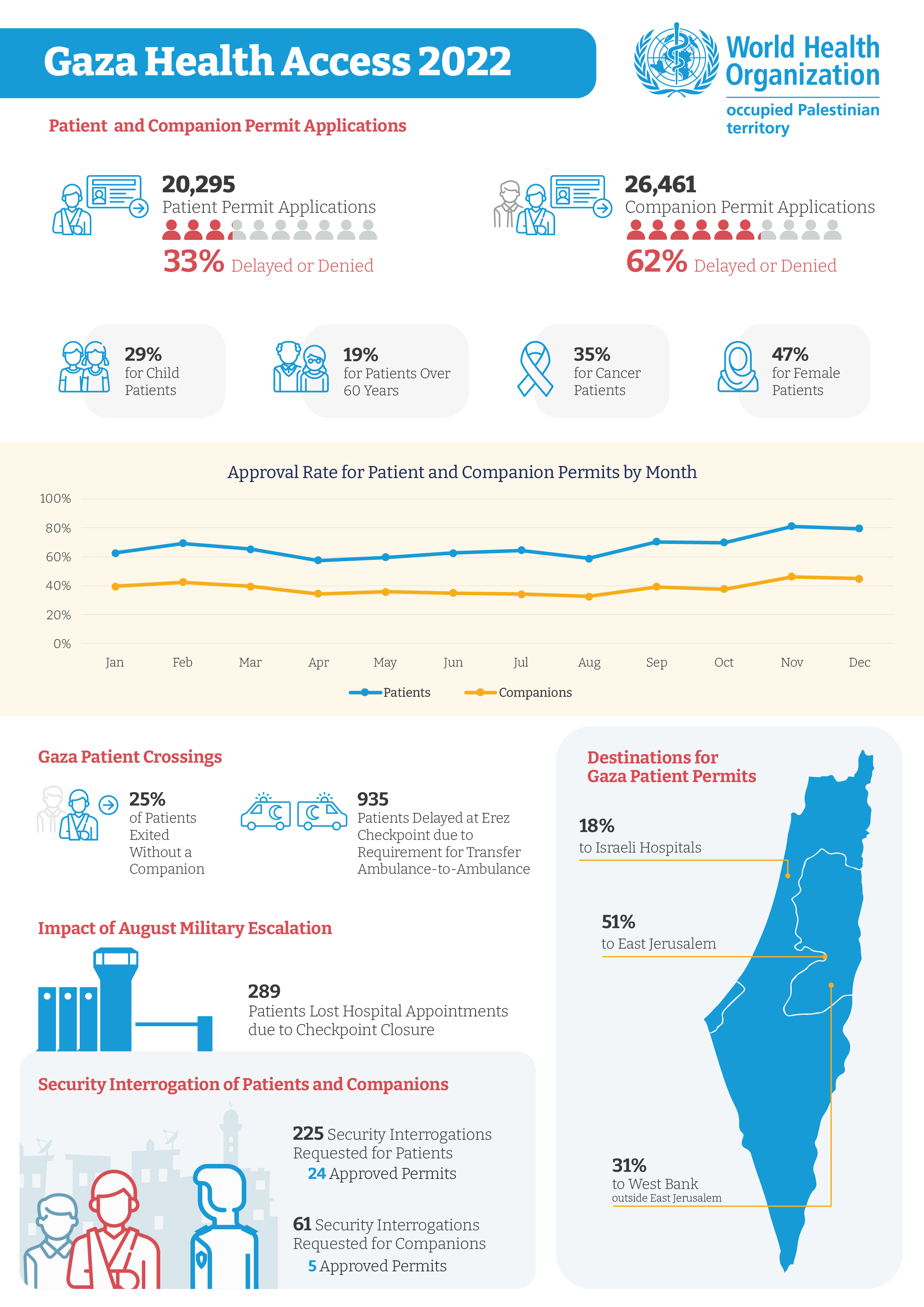PRCS driver testimony of an attack in Beit Furik, Nablus
October
PRCS driver testimony of an attack in Beit Furik, Nablus: On 2 October 2022, a Palestine Red Crescent Society (PRCS) ambulance crew travelled to Beit Furik near Nablus, to provide first aid to persons injured during demonstrations against settlement expansion and incursions in the village, when the team was attacked. Read more
Health attacks oPt 2022
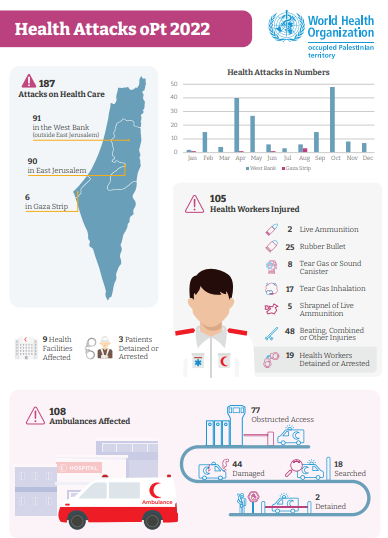
Throughout the year, WHO continued to document attacks on health care.
Below are 2 of the cases documented during 2022.
|
June St Joseph Hospital in East Jerusalem attacked In May, Israeli forces attacked St Joseph Hospital in East Jerusalem during the funeral of renowned Al Jazeera journalist Shireen Abu Akleh. The pallbearers were beaten, with police firing tear gas grenades, sound bombs and rubber bullets in the grounds of the hospital. Armed police entered the hospital building causing intimidation of patients and staff. The hospital recorded 13 injuries requiring medical attention resulting from violence carried out inside the hospital grounds. |
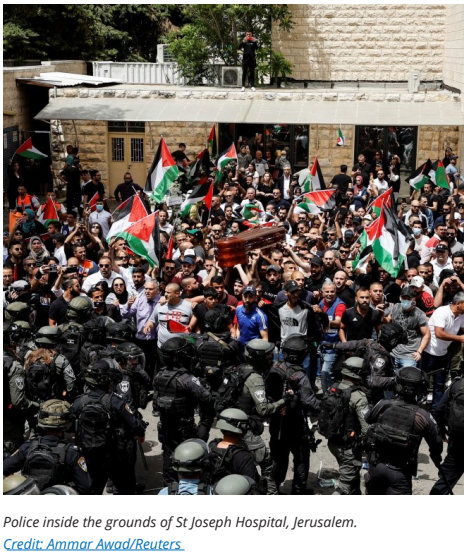 |
|
October PRCS driver testimony of an attack in Beit Furik, Nablus PRCS driver testimony of an attack in Beit Furik, Nablus: On 2 October 2022, a Palestine Red Crescent Society (PRCS) ambulance crew travelled to Beit Furik near Nablus, to provide first aid to persons injured during demonstrations against settlement expansion and incursions in the village, when the team was attacked.. read more |
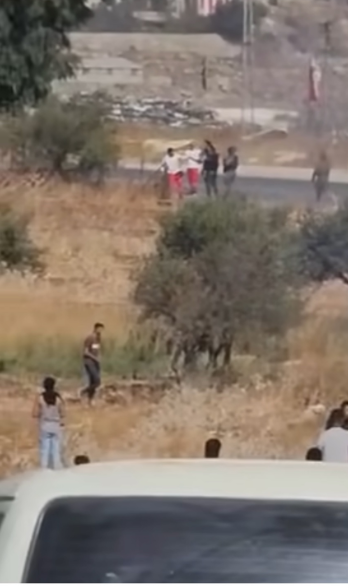 |
Gaza Health Access 2022
Throughout the year, WHO continued to document the impact of barriers to health access on the Palestinian people in Gaza.
Below are four of the cases documented during 2022:
|
January Saleem, a 16-year-old child with leukaemia, dies after barriers to hospital admission Saleem An-Nawati was 16 years old from Gaza and had acute leukaemia diagnosed in late 2021. He was initially referred for an appointment at An-Najah University Hospital in Nablus in the West Bank on 28 November 2021, but he received no definitive response to his permit application in time for his appointment. Saleem was delayed a permit to reach treatment on two further occasions, for appointments at An-Najah Hospital on 6 and 19 December ..read more |
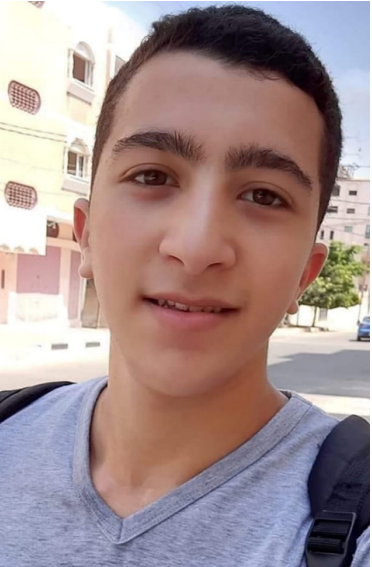 |
|
March Gaza child dies following repeated permit delays by Israel Fatma Al-Masri was a 19-month-old girl from Khan Younis in the Gaza Strip. She died on 25 March 2022 after she was delayed access to lifesaving cardiac surgery for nearly three months. Fatma was born with a congenital heart condition known as an atrial septal defect. She needed curative surgery at Makassed Hospital in East Jerusalem and was required by Israel to obtain a permit to reach her hospital appointment. Her family applied three times for permits to reach hospital appointments on 28 December 2021, 13 February 2022, and 5 April 2022... read more |
 |
|
May 5-year-old Ahlam repeatedly delayed access to a critical operation for her hearing Ahlam is a 5-year-old girl born in Beit-Lahia in the north of the Gaza Strip. Since she was six months old, Ahlam’s family noticed she was not as responsive as other children her age and suspected that a problem with her hearing. They took her to two charitable organizations in the Gaza Strip, Atfaluna and Hamad Hospital in Gaza City, who examined her hearing and diagnosed Ahlam with partial hearing loss.. read more |
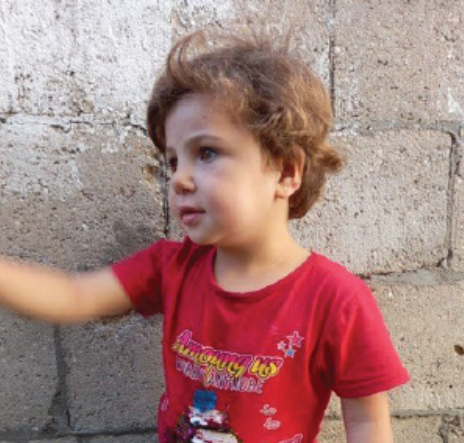 |
|
July Ahmed, a patient with cancer, delayed critical follow up for four months Ahmed is 39 years old and from the Gaza Strip. He was diagnosed with cancer in his right parotid gland in 2013, receiving surgery and treatment in Egypt. In 2016, doctors found a recurrence of his cancer and he had further surgery in 2017 at Assuta Hospital in Tel Aviv. There, Ahmed received medicines, radiotherapy and chemotherapy to increase the chances of being successfully treated and since then has needed regular follow up, including medical imaging (PET scans) not available in the Gaza Strip... read more |
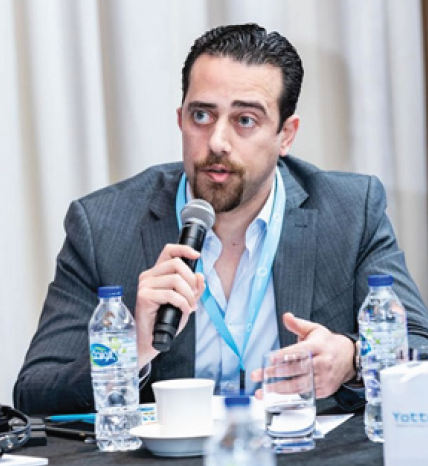 |
Scaling-up Mental Health Services in Palestine
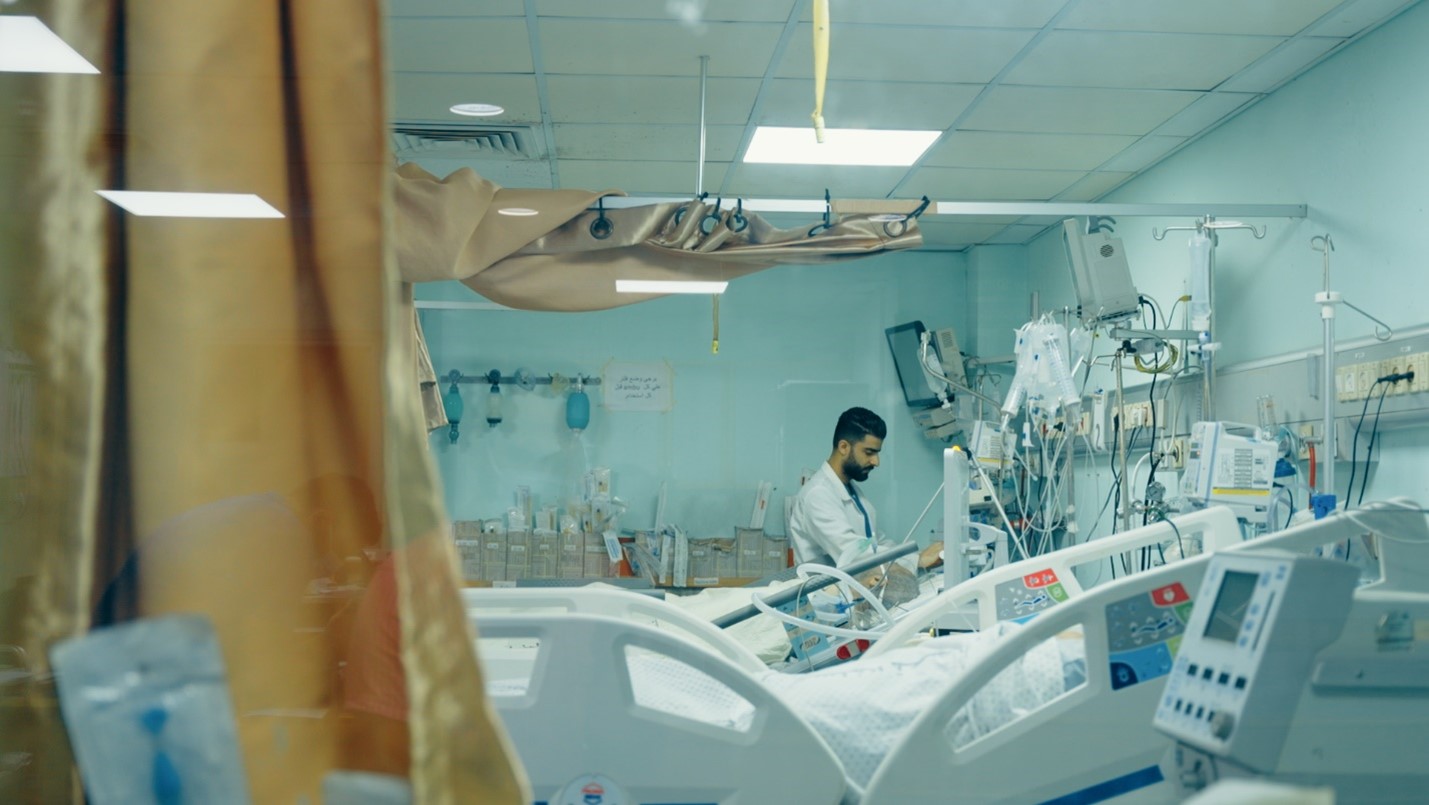 Nurse Ibrahim checks on a patient in the ICU, European Gaza Hospital
Nurse Ibrahim checks on a patient in the ICU, European Gaza Hospital
“Seeing someone so young attempt to take their own life is heart-breaking. Though we work in a tough environment, witnessing such suffering never gets easy. Sadly, this is not our first such case,” says Ibrahim, ICU Nurse at the European Gaza Hospital.
Recently, he has been caring for a 19-year-old male who was admitted to the ICU after attempting suicide.
Ibrahim and other health workers treating the patient understand that recovery will be long and hard. Medicines are only one part of the treatment and will need to be complemented with extensive mental health support to help him recover and reintegrate into his life.
“These incidents don’t just happen because someone had one bad day. There is always a deeper reason. Something is eating them from the inside. It’s usually a sign of mental health challenges the individual might be facing,” says Ibrahim.
Over the last few days, he’s built a special bond with the patient, and his empathy and understanding have helped him feel comfortable and express his feelings. This has been instrumental in identifying the mental health challenges the patient is facing, which are at the root of his problems.
“He’s been suffering from severe depression and anxiety for some time. Unfortunately, he suffered in silence and alone. When it got too much to bear, he tried to take his own life. His worries stem from sheer economic desperation and hopelessness. He’s not been able to find a job and support his family,” says Ibrahim.
Besides giving him the daily dose of medicines and injections, Ibrahim is also bringing him hope. He is playing a crucial role in the patient’s mental healing by providing initial psychological support and offering a safe space to talk and process the ordeal he has experienced. The patient will be referred to a specialist for further support once he is ready to be discharged.
Ibrahim is one of 300 health workers from Gaza and the West Bank trained by WHO on the Mental Health Gap Action Programme (mhGAP) Intervention Guide (2.0), with support from The Big Heart Foundation.
WHO’s mHGAP rollout includes integrating mental health care into primary and secondary health services by training non-specialist health workers to identify, support, and treat mental health conditions. This approach addresses multiple barriers to accessing mental health services in Palestine, such as lack of trained staff, limited facilities, poor quality of services, affordability, under-resourcing, stigma, and discrimination.
Addressing the Gap
Strengthening the skills of non-specialist health workers contributes to reducing the treatment gap and scaling-up up mental health services by making them more accessible as people can access services closer to home more easily. This also eliminates the potentially prohibitive costs of seeking specialist care in distant locations, making it a feasible, affordable, and cost–effective solution, especially for low- and middle-income countries. Additionally, it allows for treatment in a familiar environment, where people can maintain support networks, employment, education, and other activities while receiving care, which facilitates recovery.
For most common conditions, integrated care by primary and secondary care staff trained in mental health can be preferable to specialist care because it helps to reduce stigma and discrimination.
For Ibrahim, the training has helped him improve the quality of health care delivery to patients.
“Since receiving the training, I am much more aware that physical and mental health problems can often be treated simultaneously. This is a new way of working for me and is helping me understand and treat my patients better. After all the mind and body are very closely linked, one can’t do well without the other, says Ibrahim.
Extending support to care givers
The benefits of the training have gone beyond just helping patients for Abdullah, a Paediatric Nurse at the Emergency Department of the European Gaza Hospital. A few months ago, he received a child suffering from gastroenteritis. While treating his young patient, Abdullah was alarmed by the stress the child’s mother was exhibiting.
“All mothers get extremely stressed when it comes to their child’s health. I told her that her son would be fine and required routine treatment, but she kept sobbing uncontrollably. This was not normal at all”, he recounts.
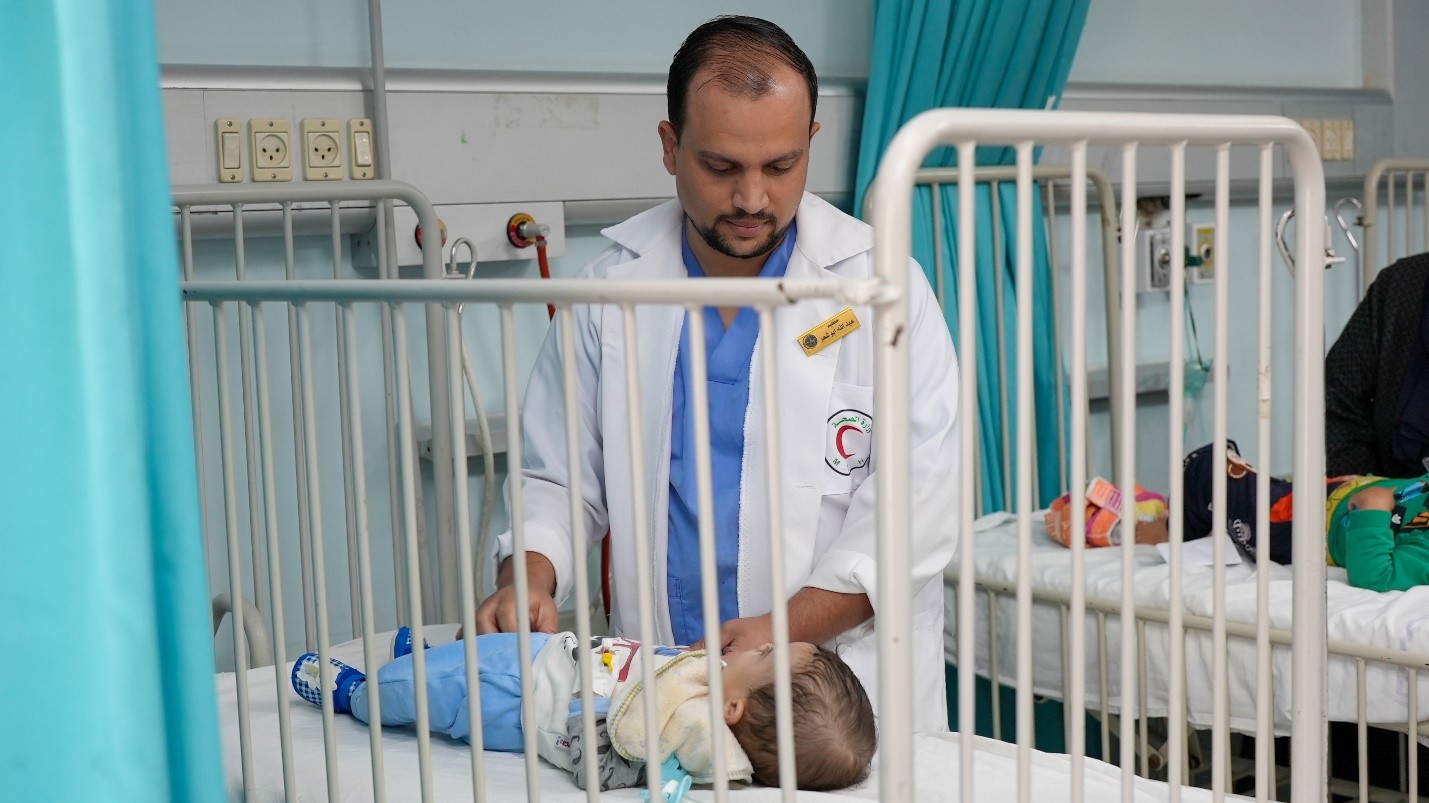 Nurse Abdullah treats a patient at the Emergency Ward of the European Gaza Hospital
Nurse Abdullah treats a patient at the Emergency Ward of the European Gaza Hospital
He immediately recognized that she is likely suffering from underlying mental health issues and knew he had to help her. After treating the child, he conducted a mental health screening, and it quickly became evident why her child’s sickness was stressing her so much.
“She had recently lost her older child due to ill health and was still suffering from trauma,” says Abdullah.
He provided initial psychological support and recommended that she seek help and speak to her family, so her condition does not worsen.
While the need for mental health services in Palestine remains high, health workers trained on mHGAP will be vital in bridging the gap and supporting many people who could have gone undiagnosed. Plans to cascade and make the mHGAP training accessible to more health workers are being developed by WHO as part of the overall efforts to advance universal health coverage.








